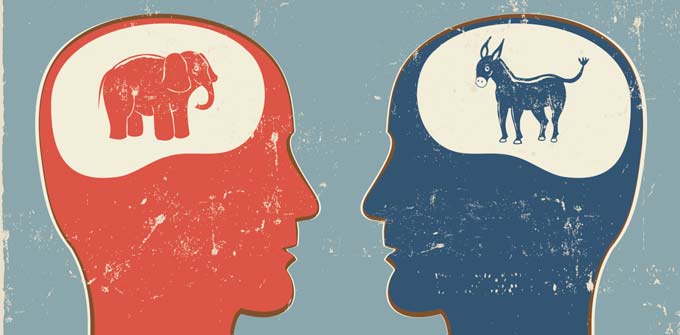(ThyBlackMan.com) Last night, I made what might be one of my most emotional appearances ever on CNN’s AC360. I’ve appeared on Anderson Cooper’s show more times than I can remember, but this was an appearance that I will never forget.
The situation revolved around a discussion of “Affluenza,” a (fictitious) condition in which a person’s wealth makes them incapable of understanding the consequences of their actions. The defense was used in the case of 16-year old Ethan Couch, who got drunk, got behind the wheel, and proceeded to k**l four people. He also paralyzed one of his friends, who was riding in the back of the truck.
Couch had a b***d a*****l level that was three times the legal limit when he k?lled those people that night. For some reason, Judge Jean Boyd bought the Affluenza defense (which is not recognized by the American Psychiatric Association), and gave Couch 10 years probation right after the perpetrator had delivered the de?th penalty four times and sentenced a 16-year old kid, Sergio Molina, to almost complete paralysis (he communicates only by blinking his eyes).
A petition has been filed on Change.org calling for Texas governor Rick Perry to remove Boyd from the bench. I am going to sign that petition. I also appreciate Anderson Cooper for speaking up on the injustice during multiple CNN segments and pointing out the judge’s disturbing and discriminatory history.
multiple CNN segments and pointing out the judge’s disturbing and discriminatory history.
Yvette Carnell writes about how judge Boyd gave much harsher sentences to African Americans, even when they do less harm than Couch did that night:
Black teens, however, aren’t nearly as lucky when they come before the courts. Kuntrell Jackson, who is black, was 14 years old when he took part in a robbery that ended with the d***h of a store clerk. Even though Jackson was not the trigger man, he was tried as an adult sentenced to life in prison without the possibility of parole.
Evan Miller, who is also black, was 14 when he was convicted of murdering a man he was attempting to rob. He was also sentenced to life without parole.
The judge also gave a 10-year sentence to a teen who p*****d someone who died after falling and hitting his head.
This case is even more sickening when one considers how often serious psychological problems are not taken into consideration when the cases involve poor, black or brown people. How often do our kids commit crimes after being victims of years of abuse, neglect, hunger, miseducation and dire poverty? When my deceased uncle/older brother figure was sent to prison, I never once heard a judge consider the fact that he suffered from severe mental illness all throughout his life. In fact, going to prison only served to worsen his mental illness, not make it better.
The very idea that this kids’ wealth was turned into a convenient liability lies in contradiction to the fact that his wealth has always been a tremendous asset. It’s allowed him to get whatever he wants, whenever he wants. But when the spoiled rich kid’s actions finally catch up with him, the very thing that’s given him an advantage is suddenly considered to be a huge disadvantage.
When we spoke on the CNN segment, I thought about the individuals I know personally who received far harsher sentences for even the pettiest crimes. I think about a friend of mine, Darrell Padgett, who received a 40 year sentence for possession of one gram of crack cocaine. I think about the individuals I’ve seen emerge from prison with severe mental illness after years of t?rture while in state custody. There is also the 16-year old kid, Kalief Browder, who was starved half to d***h in Rikers Island jail while being held, without charge for a crime he didn’t commit.
Mind you, not every judge is as corrupt and misguided as Boyd. But the case struck a chord with those of us who are sick and tired of seeing our children treated like animals while wealthy children receive a s**p on the wrist for even the worst offenses. On the Syracuse University campus (where I teach) on Friday nights, the rampant drug and a*****l abuse will likely never receive the same police scrutiny that it might get if the offenders were African Americans in public housing. Police are rarely going to stop and frisk a rich white kid, yet even the tiniest imperfections of black youth are scrutinized beyond comprehension.
The best way to cure Couch’s Affluenza is to subject him to a fate only slightly better than his victims. I’m not sure I’d go as far as giving him the same de?th penalty he doled out that night during his drunken joyride, but a decade in state prison might give him just the kind of treatment he deserves for what he did to those people. Also, the deprivation of wealth and privilege might help him understand that there are indeed consequences to his actions, effectively curing him of the ailment that has left him so “disadvantaged.”
This case wasn’t just sad for the families of the victims, it was sad for all of us. It also shows that the entire criminal justice system itself suffers from a severe case of Affluenza: Justice for the white and wealthy is both separate and unequal, especially in the state of Texas.
Staff Writer; Dr. Boyce Watkins
Dr. Boyce Watkins is the founder of the Your Black World Coalition. For more information, please visit http://BoyceWatkins.com.
















This should not be made a black and white thing so more people can make a living off screaming the world is racial. But I do hope there are so many huge lawsuits against this family and the kid and the jury makes sure these people become down right poor. This is wrong the system is broken in the usa and we know it. Black or White we in the usa make up 5 percent of the worlds population but incarcerate over 25 percent of the worlds prisoners. It is a business in this country with even private prisons spending millions on lobbyist to influence laws and make the net bigger so they can fill their private prisons. State and federal guard and cops do the same through their unions because they see no problem with trading other peoples freedom to keep themselves in jobs. It is sick. And as far as this little bastard that is too rich to go to prison he ought to do a couple years of hard time with regular folks and get his ass kicked a few times to bring him into reality. But no don’t make it black and white we need to get above that garbage. Some black people want rich whites in prison and rich whites want blacks off welfare so it comes down to both sides having a good point so we should work to fix both issues.